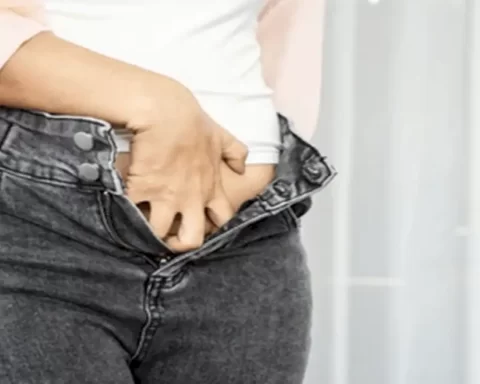New Delhi, November 21, 2023 (Mirror) In India, around 10.1 crore people are living with diabetes. A whopping 13.6 crore more people are at high risk of developing type 2 diabetes (pre-diabetes), according to a recently published study by the Madras Diabetes Research Foundation and Indian Council of Medical Research, which is why it’s so important to be aware of the symptoms.
The most commonly known symptoms of diabetes include feeling very thirsty, peeing more frequently than usual, or feeling very tired, but there are more, lesser-known signs that are important to never ignore. One of these symptoms, which is easy to pass off as relating to something else, is erectile disfunction.
Erectile dysfunction (ED), or impotence, is a problem a man might encounter while getting intimate – and it’s very common. It’s usually not something to worry about, but according to a doctor, it can be a warning sign of diabetes.
Dr Janine David, ED specialist and an advisor to Eroxon, explained to The Mirror: “In older men the most common cause of erectile dysfunction is lack of blood flow in the penis.” This causes men to fail to get, or keep an erection, and can be caused by a number of things, including stress, tiredness or drinking too much alcohol.
However, it can also be caused by having high blood sugar levels, which is what happens to someone who has diabetes. Janine explained: “Having high blood sugar levels for a period of time can damage the blood vessels and the nerves including those that supply the penis. This can restrict the amount of blood flowing to the penis leading to loss of sensation and difficulty in becoming sexually aroused.
“High blood sugar and diabetes hence contribute to erectile dysfunction, and erectile dysfunction can be an early sign of diabetes.” As the numbers of people being diagnosed with diabetes continue, Janine expects there to be an inevitable “parallel rise in erectile dysfunction”.
Therefore, Janine urged: “It is important to visit your GP if you develop erectile dysfunction to get tested for diabetes. One in three men have already developed blood vessel damage by the time they are diagnosed with diabetes, plus real-world research for Eroxon 1 found that more than a fifth (22%) of men with erectile dysfunction have diabetes. And an analysis published in Diabetic Medicine found that 57.7% of men with diabetes have erectile dysfunction rising to 66.3% in men with type 2 diabetes.”
According to Janine, many of those who suffer from erectile dysfunction aren’t aware of the link between it and diabetes. She said: “The link between erectile dysfunction and diabetes is clear, but there is very limited knowledge of this link amongst sufferers of ED. In the Eroxon survey only a third of ED sufferers and their female partners were aware of the danger and only in five male partners knew of this link.”
Another link between erectile dysfunction and diabetes is testosterone. Janine explained: “Testosterone is another part of the jigsaw in that testosterone deficiency is a key drive for ED and Diabetes UK estimates that 16% of men with type 2 diabetes have low levels of testosterone whilst a further 24% have testosterone levels near to borderline low level.
“Obesity, which is itself a risk factor for diabetes, also contributes to ED. According to the Eroxon survey, four out of five men with ED are overweight or obese. Having a BMI over 30 triples the risk of ED.”
The ICMR urges people who have any symptoms of diabetes to see a doctor. You should do the same if you have erection problems that “keep happening”, as it “might be a sign of a health condition that can be treated”





